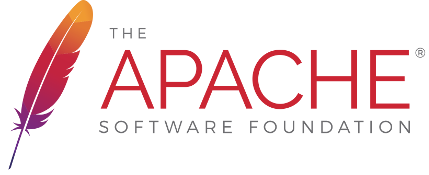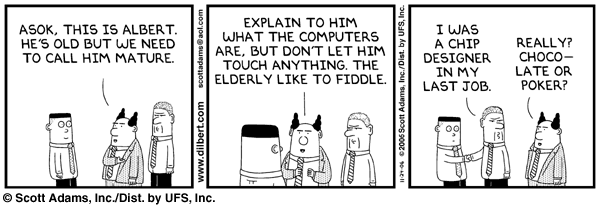Those who listen to National Public Radio (NPR) probably hate pledge drive season. That is probably because they fall into one of two camps. The first, and biggest, are those who enjoy some of the programs broadcasted, but cannot understand why they are being pestered to donate and just want the asking for funds to stop. The second group, and more profound of the two, "get it" and are eager to help fund NPR. They also know that if a high percentage of folks who listen in would donate on the first day of the drive then the whole thing would be over on day one and the never-ending begging could stop.
Why am I rambling about NPR anyway? Over that last few years I've been working for a company that is 100% devoted to open source software (OSS) – specifically "open community" software such as shepherded by the Apache Software Foundation (ASF) – as well as a "user" of multiple OSS projects for years before that and I can easily see the parallels of these two models.
OSS is provided free & clear and available to all. That said, everything costs money (or at least time!) and most sustainable OSS & ASF projects require time & money to continue to grow & innovate!
So, while no OSS-focused company is going to try to sell you on being a "supporting member" (they will try to sell your a "support subscription"!!), I personally make that request of everyone. If you leverage OSS projects as part of your mission-critical systems, then you really do owe "the community" your support. Heck, you don't even have to be a customer of any of the firms who are sponsoring the maintenance/innovation of your favorite framework; you can test out new versions, submit a bug, or better yet, offer back a contribution which could even be documentation if you are not ready to offer a code fix or a new feature.
Can I count on your support?
Being a man of a "certain age" (that was a good show) and staring down another one of those birthday's that end in a 0, I was a little disturbed to read an email version of Marc Cenedella's The Y2K Bug... on your resume blog post. What bothered me so much was Marc's clear comment that ageism is out there and his answer was Don’t list any dates on your resume before the Year 2000. Truth is, I am proud that I have worked in the software development field since graduating in the early 1990's. Those early and varied experiences I have from my mainframe days, through the early client/server days, and the thrilling .com rise (and bust!) have shaped my professional experience.
Marc's article is well written and is intended to help folks, so please understand that my comments are not a dig on it. There's a theme that the work you did 16+ years ago is "simply not relevant ... today". He suggests that "younger and younger" recruiters are simply, and probably unconsciously, "putting us into the discard pile on the account of our age". He's probably right!
So why continue to list your full career on your resume? Well, most folks with experience see value in it. Some of us actually see the ongoing recycling of ideas and approaches in technology and well in methodologies. Heck, one of my favorite phrases is "it is STILL a great idea". I'm not suggesting folks look to hire stagnant non-innovative employees, but I do appreciate organizations who fundamentally see the benefit of having a varied workforce regarding experience levels. In my own career, I've been able to work at a few companies who are supportive of this mindset. I'm enthusiastic about companies such as Elastic who go as far as to make public statements such as the following.
"Your age is only a number. It doesn't matter if you're just out of college or your children are; we need you for what you can do."
Ok... time to stop "complaining" and sounding like a grumpy old man. ![]() So, what advice could I offer? To recycle some advice I recently read (I simply could not find the article to cross post), "work as if you are 35". Basically, the article said that if you continually position yourself as someone that has solid & competent skills in your trade, but who is still eager to see if there is a better way to do something, you will be doing yourself, your team and your organization a huge favor. I really like that thought (other than the implied "if you're over 35 your no longer flexible" line of thinking) and I'm going to continue to think that way as I work.
So, what advice could I offer? To recycle some advice I recently read (I simply could not find the article to cross post), "work as if you are 35". Basically, the article said that if you continually position yourself as someone that has solid & competent skills in your trade, but who is still eager to see if there is a better way to do something, you will be doing yourself, your team and your organization a huge favor. I really like that thought (other than the implied "if you're over 35 your no longer flexible" line of thinking) and I'm going to continue to think that way as I work.
My strongest piece of advice is to remain relevant. All industries, even the high-tech one I am in, change and it is incredibly easy to be outdated before you know it. If you can keep looking at the road ahead and determine (and build!!) the skills needed to remain relevant, you will greatly increase your ability to have a happy and successful career filled with opportunities. You will have a much better chance to leverage the "valley culture" theme paraphrased below from Laid Off? It's Good for You and Good for the Tech Industry (how's that for a loaded title?!!?) which was published back in 2009 and still valid today.
"Valley culture has an unwritten rule that if you don't like a job, or if you think your company isn't going anywhere, you leave. Instead of hanging around the office whining, you walk out the door and find something better and cooler to do. Because skilled tech workers are hard to find and interesting companies abound, employees, not employers, call the shots. This was true at Apple in 1984, and it's still true at Facebook today."
With all of these super powers, just don't be in such a hurry to change your job (the suck continuum explained) and do remember to strike a balance of investing in your future (which does take a significant amount of effort) with enjoying the fruits of your labor. On that note, the next time you are in Silicon Valley have fun visiting the computer history museum (yes, i'm a geek).
Here's to 2017 being your best year of your career yet!!

